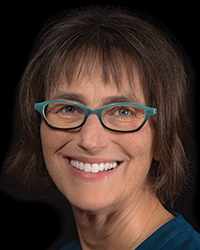Fredrickson receives TANG Prize for Positivity Research
 APS Past Board Member Barbara Fredrickson has been awarded the TANG Prize for Achievements in Psychology. Fredrickson, a Kenan Distinguished Professor of Psychology and Neuroscience at the University of North Carolina at Chapel Hill, is best known for her “broaden-and-build theory,” which suggests that positive emotions evolved in humans and other animals as a way of encouraging the development of beneficial traits, social bonds, and abilities.
APS Past Board Member Barbara Fredrickson has been awarded the TANG Prize for Achievements in Psychology. Fredrickson, a Kenan Distinguished Professor of Psychology and Neuroscience at the University of North Carolina at Chapel Hill, is best known for her “broaden-and-build theory,” which suggests that positive emotions evolved in humans and other animals as a way of encouraging the development of beneficial traits, social bonds, and abilities.
Author of more than 100 peer-reviewed articles, Fredrickson’s research has expanded psychology’s understanding of the mind–body connection, positing that people can improve their physical and mental health by learning to replace negative thoughts with feelings of joy, gratitude, and love.
Fredrickson’s books, Positivity and Love 2.0, have been translated into more than 20 languages, and a free online course on her findings has reached students in more than 190 countries. In 2010, Fredrickson was invited to share her research with the Dalai Lama.
“Barbara Fredrickson’s work has made an incredible impact on the field of psychology,” said Fay Tang, founder of the TANG Foundation that established the award in 2014, in a statement. “Her scientific contributions align perfectly with the aim of the TANG Foundation, which is to raise awareness of the importance of psychological health in the world.”
Fredrickson will receive the TANG Prize at a ceremony on November 12 at The Arts and Letters Club of Toronto, where she will give a special lecture titled “Positivity Resonates.” The award includes a $100,000 cash prize.
“I thank Dr. Tang for shining the spotlight on psychology and the efforts within my field to understand and raise people’s well-being,” Fredrickson said in the release. “I also extend my deep gratitude to those whose ideas and actions have inspired me, as well as those who have leveraged my ideas into actions for the benefit of others.”




APS regularly opens certain online articles for discussion on our website. Effective February 2021, you must be a logged-in APS member to post comments. By posting a comment, you agree to our Community Guidelines and the display of your profile information, including your name and affiliation. Any opinions, findings, conclusions, or recommendations present in article comments are those of the writers and do not necessarily reflect the views of APS or the article’s author. For more information, please see our Community Guidelines.
Please login with your APS account to comment.